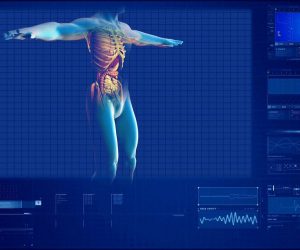
Researchers Can Extend the Lifespan of Mice: Are WE Next?
Abigail Klein Leichman via Israel21c – Scientists from Israel and Kiev induce long-term decrease in metabolic rate and body temperature of warm-blooded animals for the first time.
The naked mole rat never develops age-related diseases. It stays active and enjoys good bone health, reproductive success and mental acuity for its lifespan of up to 30 years.
Two of many reasons for this creature’s healthy longevity are its low body temperature and slow metabolic rate.
For the first time, researchers from the Institute of Gerontology in Kiev and Prof. Vadim Fraifeld’s Lab for the Biology of Aging at Ben-Gurion University of the Negev in Israel have replicated those conditions in lab mice. A naked mole rat generally lives about eight times longer than a mouse despite its similar size.
The research results, published in Biogerontology, have intriguing implications for increasing longevity and decreasing major pathologies in humans as well.
According to the scientists, the naked mole rat’s burrows are poorly ventilated, keeping oxygen levels are low and carbon dioxide levels high. This may cause the reduction in the naked mole rat’s body temperature by 3-4 degrees as compared to mice and slow its metabolism significantly.
Subjecting laboratory mice to the same conditions – called a hypoxic-hypercapnic environment (HHE) — successfully reduced their body temperature and metabolic intensity for weeks and even months.
And the mice in the HHE voluntarily consumed less food, which is one of the well-known factors in increased longevity.
“Unexpectedly, the HHE accelerated skin wound healing, despite the lower energy expenditure,” the researchers also noted.
“All in all, a chronic exposure to HHE offers a potential of being a lifespan-extending intervention as well as an efficient tool for treating the overweight and associated metabolic disorders.”
The scientists explain that at one point in history, the Earth contained much lower levels of oxygen and higher levels of carbon dioxide.
“There is still some memory in our cells of that period and therefore it should be possible in the future to induce such a state for longer periods,” they said.
Moreover, they believe that HHE conditions could be used to help fight obesity, diabetes and perhaps even cancer.
Secrets of Long Life
The naked mole rat (Heterocephalus glaber), a rodent native to East Africa, has long been the subject of study because of its unusual healthy longevity and particularly its resistance to cancer.
In 2012, Tel Aviv University evolutionary biologist Dorothee Huchon and colleagues at the Texas Health Science Center and the City College of New York determined another reason for the naked mole rat’s unusual life expectancy: very high levels of a neuro-protective protein called Neuregulin 1 (NRG-1) in its brain.
Because NRG-1 is also found in the human brain, Huchon and her fellow researchers suggested that learning more about how aging and NRG-1 are related could be significant.
Fraifeld studies many aspects of human aging genomics. Graduate students in his Lab for the Biology of Aging at BGU won an award for their study on “longevity genes,” genetic protective factors that some people are lucky enough to inherit.
By modulating the activity of these genes in advanced age, it could be possible to combat major diseases.
“Although an apparent paradox, it appears that the most effective way to delay or even to avert age-related diseases is to live longer,” Fraifeld told ISRAEL21c.
Another prominent Israeli longevity researcher, Bar-Ilan University’s Haim Cohen, recently published a study showing that SIRT6, considered a longevity-related protein, is involved in regulating biological processes including aging, obesity, insulin resistance, inflammation and metabolism. His team hopes to identify therapeutic approaches that target and activate SIRT6.
Ben-Gurion University researcher Debbie Toiber specializes in studying SIRT6 and DNA repair as models of age-related diseases.
To read the original article click here.
For more articles from Israel21c click here.






